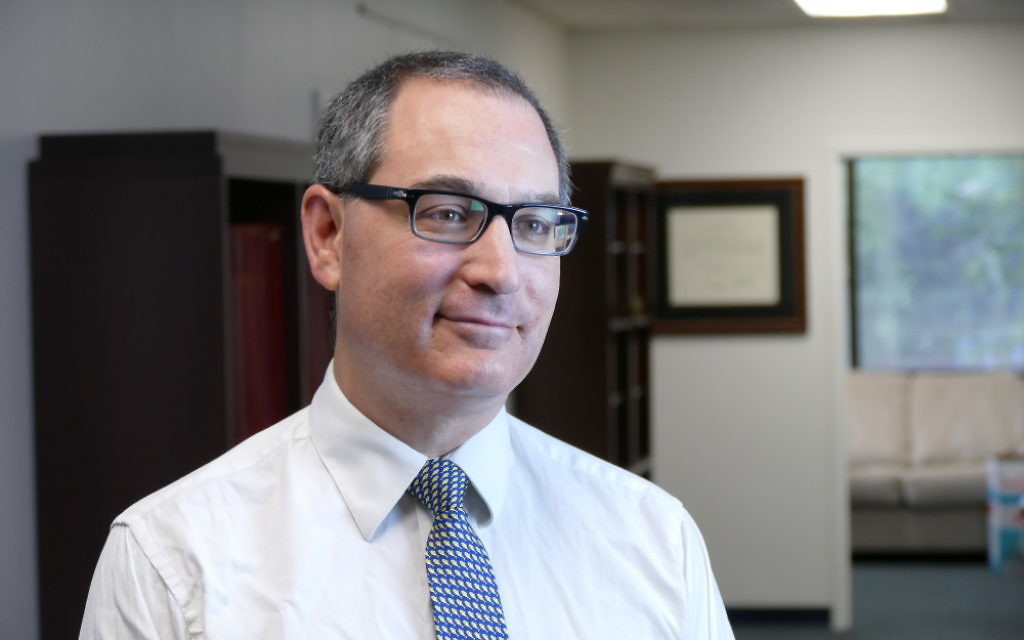Editors Notebook: Fatigue From the Long Run
Anyone who has ever decided to accomplish something worthwhile — exercise more, eat better, learn a new language, write a novel, devote more time to spiritual study — knows that the hard part isn’t getting started.
Taking that first step is easy. You’re excited and motivated and captivated by the dream of the great goal ahead of you.
But that wonderful vision of what should be rarely includes every grueling, fatiguing step along the way. Somewhere, fantasy meets reality, and hard work and determination must take the place of the excitement and adrenaline that compelled you to begin.
Get The AJT Newsletter by email and never miss our top stories Free Sign Up
That’s where many of us hit the wall, and instead of pushing through, we figuratively if not literally plop down on the couch and give up. We wind up in worse shape than ever, still limited to a Spanish vocabulary of “taco” and “tortilla,” only 10,000 words into that 200,000-word great American novel, with a pile of unread books on Talmudic thought sitting by the bed.
The mental fatigue that blocks improvement for us as individuals has parallels at the societal level, something that struck me Saturday night, Dec. 10, in the sanctuary at Ahavath Achim Synagogue.
Ahavath Achim was holding its annual HIV/AIDS Havdalah service with the progressive Virginia-Highland Church. Four eight-panel sections of the AIDS Memorial Quilt hung from the balconies on each side of the Buckhead synagogue’s huge sanctuary.
Michael and Bonnie Levine and Randy Crohn provided most of the music — including a powerful blending of Oseh Shalom and Mi Sheberach to Simon & Garfunkel’s “Sound of Silence,” Michael Levine’s own “Tekiah,” and a call-and-response version of “We Shall Overcome” — with a few key contributions from Virginia-Highland Church members.
Kerry Landis read his brother Alan’s favorite quotation from George Bernard Shaw, reminding everyone that Alan, the driving force behind Ahavath Achim’s HIV/AIDS observance and AIDS Quilt display, died in January.
Gary Alembik, who chairs AA’s LGBT inclusion task force, read a poem written by a cousin of Rabbi Laurence Rosenthal’s who contracted HIV from a blood transfusion while delivering her only child at the cusp of the AIDS crisis in 1981 and didn’t learn about the infection for a decade because of a clerical error.
Etgar 36’s Billy Planer offered a reading from his “New Jersey rabbi,” Bruce Springsteen, and Julie Rhoad, the executive director of the NAMES Project, read an extensive excerpt from John Lewis’ “Across That Bridge.”
Most moving was the quiet power of the homily delivered by the pastor of Virginia-Highland Church, the Rev. Michael Piazza, who Rabbi Rosenthal said has become one of his social justice heroes.
Piazza, a South Georgia native who was ousted from the United Methodist Church in 1981 for marrying another man, said he got a call from the Centers for Disease Control and Prevention that year after becoming the leader of a small Highland Avenue church serving the LGBT community.
The CDC wanted to know about the health of the young men in his church amid the emergence of what was being called gay-related immune deficiency — later AIDS — and Piazza realized that the disease had struck at least three members.
Piazza went on to lead a Dallas church that had about 180 members when he arrived in 1987 and grew to 3,500 during his 23 years there, making it the largest progressive Christian church in the South and the largest predominantly LGBT church in the world. But the staggering number was 1,500: That’s how many Cathedral of Hope members died of AIDS during Piazza’s less than a quarter-century in Texas.
But 35 years and more than 100,000 AIDS Quilt panels since public health officials spotted the disease, no more than 80 people attended AA’s communitywide HIV/AIDS observance. Rabbi Rosenthal said the service could have been held in a smaller space, but he felt it was important that everyone who enters the sanctuary throughout December sees those quilt sections. They shouldn’t be pushed aside in a room where people can walk by without noticing.
That’s where the fatigue kicks in: People who were angry and active and fundraising for HIV/AIDS in the 1990s have moved on to other issues that don’t seem under control (not that HIV is under control — Piazza said transmission of the virus is rising in the city of Atlanta).
“When others have grown tired and cynical, you are here,” Piazza said, giving due praise to those in attendance and to AA itself.
Piazza draws strength from the “great cloud of witnesses” — those who have died — watching him, as well as from the Talmudic concept that we must work to improve the world even though the effort won’t be completed in our lifetime.
It’s a lesson that applies beyond HIV/AIDS. The Temple’s Rabbi Peter Berg talks in this issue about fatigue in the response to gun violence. I suspect most of the weakening of support for Israel among the millennial generation results from similar fatigue, based on the idea that Israel has made it, so it’s time to move on to more pressing issues.
And I wonder whether the heated passion against Donald Trump will burn itself out as the reality of his presidency approaches normality next spring or summer or fall. Even if people are still presenting a public resistance, will any of the rest of us even notice?





comments